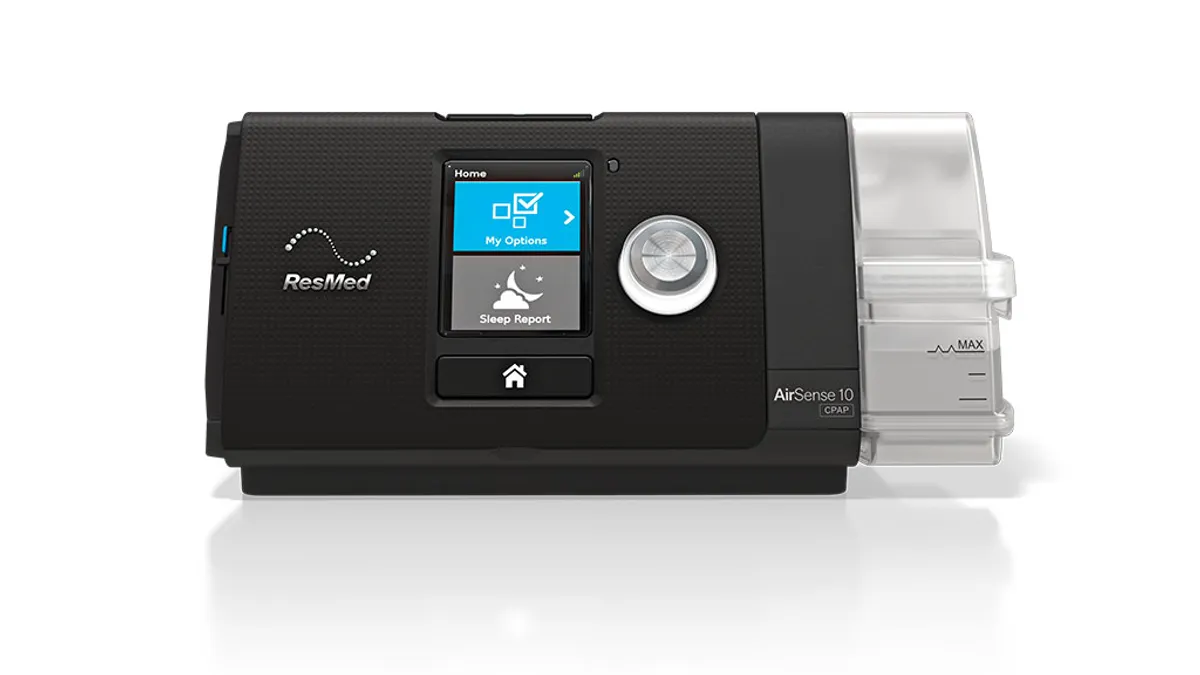Dive Brief:
- ResMed is cutting 5% of its workforce in a push to trim operating costs and focus on profitable growth, CEO Mick Farrell told investors in a Thursday earnings call.
- The San Diego-based maker of respiratory care devices had a workforce of more than 10,140 people as of June 30.
- The layoffs come amid a wave of cost-cutting across the industry: Radiation therapy company Accuray recently announced layoffs, Johnson & Johnson shared plans to restructure its orthopedics business, and Thermo Fisher announced a restructuring in July.
Dive Insight:
Farrell told investors on Thursday that ResMed took “immediate steps to ensure we're prioritizing the right things to drive profitable growth.”
As a result, the company stopped some projects that “were not working out as well as we thought,” Farrell said, though he did not specify which ones. ResMed is increasing investment in digital health, hardware and software development, which the company believes are key for long-term success.
ResMed expects the restructuring to be completed this quarter, and that it will reduce operating expenses in 2024.
In the quarter ending Sept. 30, selling, general and administrative (SG&A) expenses increased by 15%, driven by employee costs and ResMed’s acquisition of German software company Medifox Dan in November 2022, CFO Brett Sandercock told investors.
In total, SG&A made up 20% of the company’s total revenue for the quarter. The changes are expected to reduce that to 18% to 20% of total revenue for its 2024 fiscal year, Sandercock said.
“We are already a product-led organization, but our brand has increased in its value across the world, and we need to document and understand that, and understand how to engage people in non-reimbursed markets as consumers into the funnel,” Farrell said, explaining the restructuring.
“We're freeing up cash to reinvest in demand [generation], reinvest in getting patients into the funnel,” the CEO added.
“While we understand this, and we are seeing similar moves across all industries, we are concerned that investors may interpret it as a negative sign given the heightened concerns about the impact of the GLP-1 weight loss drugs,” Needham analysts wrote in a research note on Friday.
ResMed told investors on the call that it is tracking thousands of patients taking GLP-1s and using continuous positive airway pressure machines, adding that so far the company has not seen any change in adherence or resupply rates.












